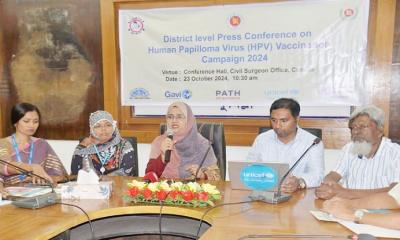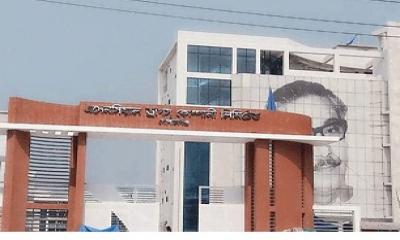# Health sector budget is continuously decreasing
# Private healthcare costs are rampant
# Patients going abroad rising due to crisis of trust
People are going abroad for treatment due to lack of trust in local medical services.
- Prof Syed Abdul Hamid, Institute of Health Economics, DU
Even after half a century of independence, many questions are still being raised about the quality of health care in the country.
In the last two decades, the number of institutions like new specialized hospitals, medical colleges, district hospitals, upazila health complexes, community clinics to deliver health services at marginal level has increased several times compared to before. In addition to the public sector, the private sector is constantly increasing investment in the health sector. As the health sector advances, so does the individual expenditure on medical treatment.
Despite the increase in medical expenses, the crisis of confidence is intensifying. The number of patients going abroad is increasing every year. Thousands of crores are going abroad for medical expenses.
Public health experts said that despite some infrastructural development in health services in the country, it has not been possible to ensure modern services like the global health services. They are blaming the continuous decrease in budget allocation in the health sector, irregularities, lack of accountability, shortage of doctors in proportion to the population, unnecessary medical expenses as the main reasons.
Meanwhile, patients are spending more than hundred thousand crore annually to get treatment in government and private hospitals of the country. Out of this, most of the money has to be spent in getting treatment in private hospitals.
According to Bangladesh Bureau of Statistics (BBS) survey, increasing expenditure in the health sector has left families in the country facing difficult decisions. In the last few years, the expenditure in the medical sector has increased by 202 percent. As a result, the health sector has overtaken education in family spending priority.
According to a report by the World Health Organization, 24 percent of people in the country suffer from catastrophic expenses when it comes to medical expenses. Every year more than 62 lakh people go below the poverty line while seeking treatment.
According to the Health Economics Unit report, annual health expenditure per capita is $54. In 2017 it was $37 and in 2014 it was $33. That is, the cost is increasing every year. Medicines account for more than half of the total cost of treatment. Access to drugs from free government systems and NGOs has decreased. As a result, more people than before are forced to buy medicines from private pharmacies and dispensaries.
On the other hand, the number of patients in private clinics and hospitals is also increasing due to the reduction of treatment facilities in government hospitals. In 2015, 8.61 percent of people were treated in private clinics and hospitals, in 2022 it increased to 9.13 percent. As the price of private medical services is not fixed, the service price is also increasing unbridled.
Another report of the World Health Organization says that currently 74 percent of individual expenditure on medical treatment in Bangladesh is out-of-pocket. This is more than neighboring countries. Of this, 44 percent was spent on medicine. Fees for various diagnostic tests, doctor's consultation fees and medicines have increased by at least 15 percent in hospitals in the last one year.
The shortage of manpower in the health sector is also a major obstacle in providing quality healthcare in Bangladesh. There are 0.7 doctors and 0.49 nurses and midwives for every 1,000 people. Again, 24 percent of the posts are vacant in this short manpower.
Meanwhile, the budget allocation for the health sector is decreasing consistently every year. Although the World Health Organization recommends that at least 15 percent of the national budget be allocated to the health sector, in the last financial year 2023-24, the allocation for this sector in Bangladesh was only 5 percent.
On the other hand, hundreds of thousands of Bangladeshis go to India, Singapore, Thailand, China, Japan, Saudi Arabia, United States, United Kingdom for treatment every year in the hope of trust crisis and better treatment.
According to the Health Committee of the Indian Chamber of Commerce, the number of people traveling from Bangladesh to India alone for medical treatment has increased by 84 percent. About 2.4 million medical tourists go to India from Bangladesh every year. They are spending more than thousands of crores of in the country for treatment.
Dr Syed Abdul Hamid, professor of Health Economics Institute of Dhaka University, said The Daily Post about the country's medical services and budget allocation in this sector.
He said, “The medical services sector in the country has improved comparatively in the last two decades. But it is not enough in proportion to the country's population because for not improving domestic medical care with global improved medical care, lack of budget, shortage of manpower, irregularities in the health care sector. The cost of domestic medical care is constantly increasing. In many cases people are not getting better treatment despite spending money. This creates a crisis of confidence. People are going abroad for treatment due to lack of trust in local medical services. People are spending the country's money abroad which is having a negative impact on our economy.
ZH






